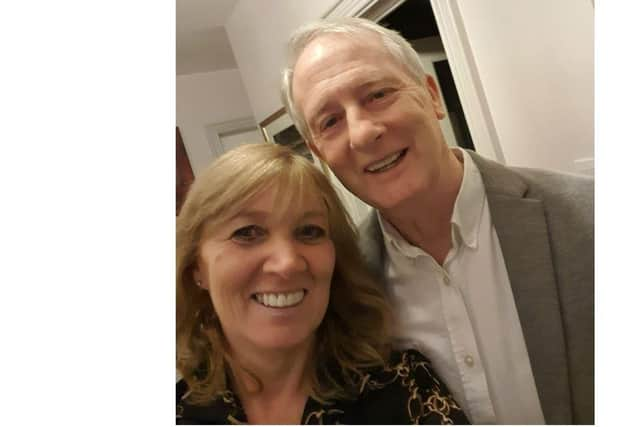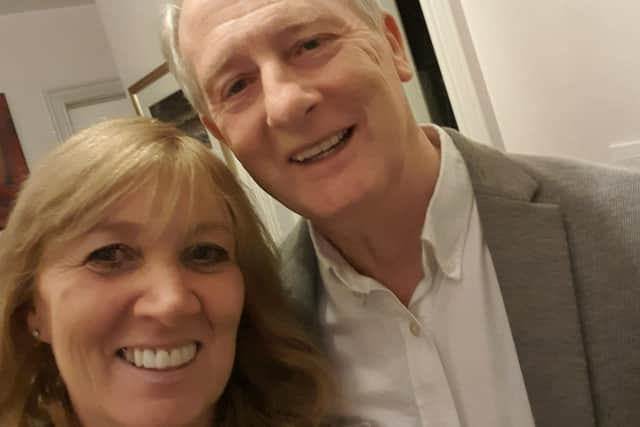Co Armagh couple share their their experiences of fostering young people
and live on Freeview channel 276
They live near Loughgall village and, after their three sons left home, they set about filling their lives (and empty rooms) once again with a new generation of young people that would benefit from the experience they gained rearing their own children.
Unsure of which age range of children suited their lifestyle best, the couple initially asked to care for up to two children between the ages of 0-18 years. They believed would enable them to have a variety of fostering experiences, leading to them identifying their preferred age group through time.
Advertisement
Hide AdAdvertisement
Hide AdLooking back, they really enjoyed a range of fostering experiences having looked after young babies and all age groups through to older teenagers. On many occasions, sibling groups of differing ages have lived with them and they emphasised how important it is to ensure that brothers and sisters are able to remain together at times when they are unable to live with their parents.


They say that each age group brings its own challenges but also many rewards. Due to living in the countryside, they are regularly ‘running the roads’ transporting teenagers to various activities or appointments, however they reflect on how things were with their own children and are content that this is ‘normal’ for all parents and carers in rural settings.
Caring for babies and younger children brings different demands and is not a regular feature of their lives today. They speak about the special bonds they had with the young children but now that they are that wee bit older and perhaps less fit, they reserve their energy for visits from their grandson who fits in perfectly alongside the teenagers they now foster.
Over the years, Pauline and Barry have identified the importance of matching what they can offer as a family against the individual needs of any child. Short term fostering versus long term fostering is a key factor they now consider.
Advertisement
Hide AdAdvertisement
Hide AdIn the early years of their fostering career, they really enjoyed the experience gained from fostering children who were in need of a short-term placement. This meant that there was a quick turn-around of young people and they took great satisfaction that they were making a positive difference to the lives of lots of young people in need.


Through time, this has changed in a natural way rather than by conscious decision-making. Some of those young people who were placed in their care for a ‘short term placement’ seemed to just fit in and so the search for a ‘forever home’ for them ended as all involved (especially the young people themselves) realised that they had already found what they needed with Pauline and Barry.
Their previously busy bustling house has now become a more settled and all together predictable home for three young people, including one person who arrived as a young teenager and is now a 20 year old adult. Such arrangements are reflective of ‘normal life’ in most families and mirrors Pauline and Barry’s experiences with their own children who needed their ongoing support into early adulthood, until they were ready to make a successful transition to independent living.
Obviously caring for three young people aged 16-20 is not always smooth sailing for any parents and you might think that this would be more than enough for foster carers to manage as well. However Pauline and Barry are also Out of Hours foster carers and perhaps it is this which keeps them feeling and looking young! This scheme is shared on a rota basis with other foster carers and means that for a particular week Pauline and Barry open their home to care for children who are admitted to foster care in an emergency outside of normal 9-5 office hours. Such placements usually extend no longer than 72 hours by which time the child will have returned home or moved to other foster carers.
Advertisement
Hide AdAdvertisement
Hide AdThrough this scheme they have had the experience of caring for an unaccompanied young person from overseas and have maintained contact with her since she was reunited with her parents in Romania.
Pauline and Barry speak enthusiastically about their fostering experiences and the many special young people they have had the pleasure to get to know and help.
They feel it has greatly enhanced not only their own lives but also the lives of their children as they too have embraced the transition to being part of a ‘fostering family’.
When Pauline and Barry became foster carers, they had established careers and quickly learned to find the balance that was required to manage work and home commitments.
Advertisement
Hide AdAdvertisement
Hide AdAs fostering took on greater importance, Pauline was supported financially by the Family Placement Service to reduce her work commitments in order to be more available for the children she fostered. Support for foster carers is central to making fostering a success and comes in many forms.
If you would like to learn more about the various types of fostering that may be a good match for your family, check out the NI Adoption and Foster Care website www.adoptionandfostercare.hscni.net/
-
-
Comment Guidelines
National World encourages reader discussion on our stories. User feedback, insights and back-and-forth exchanges add a rich layer of context to reporting. Please review our Community Guidelines before commenting.